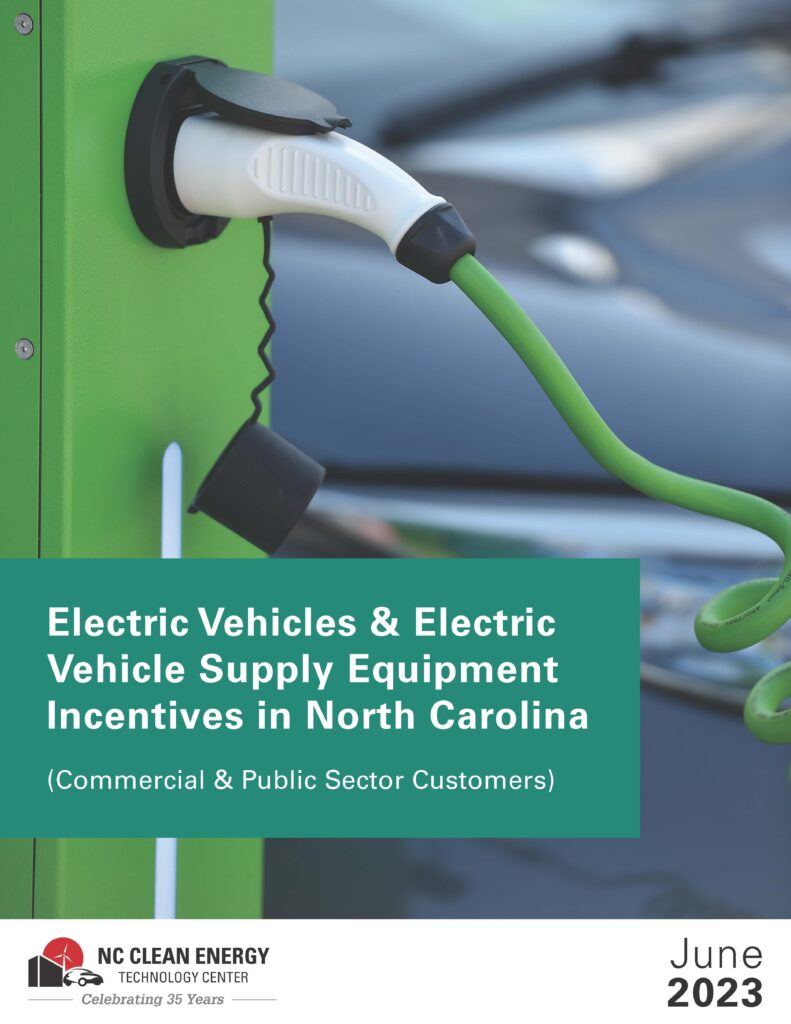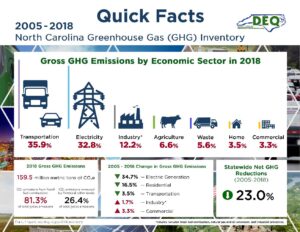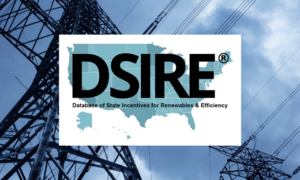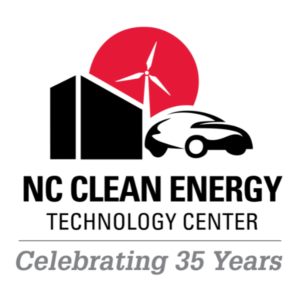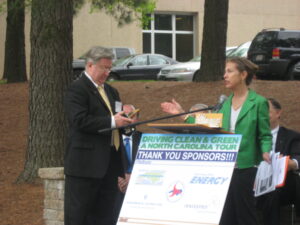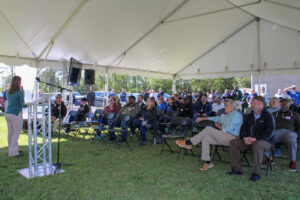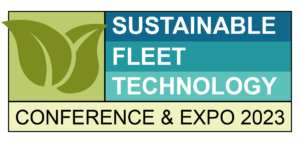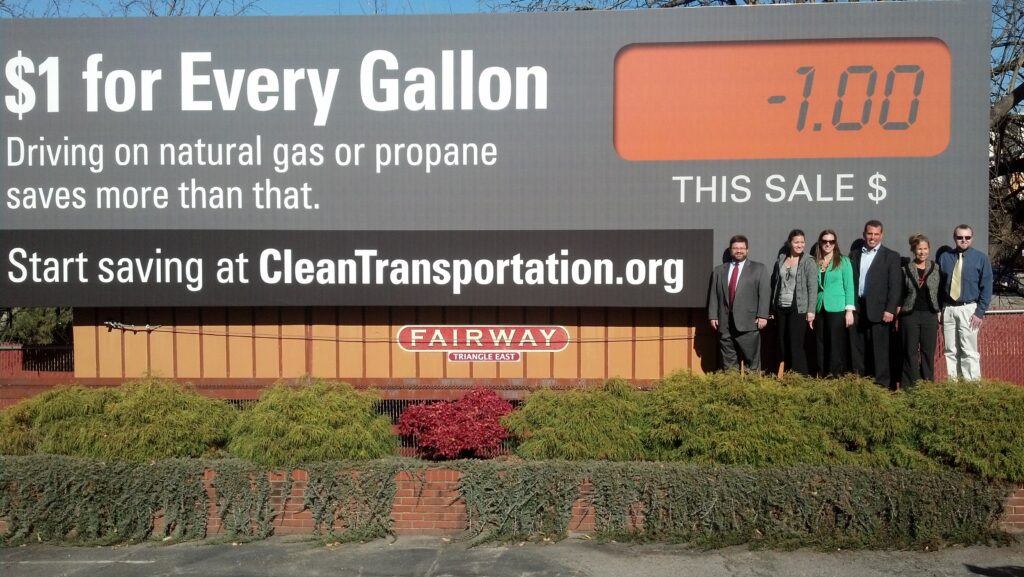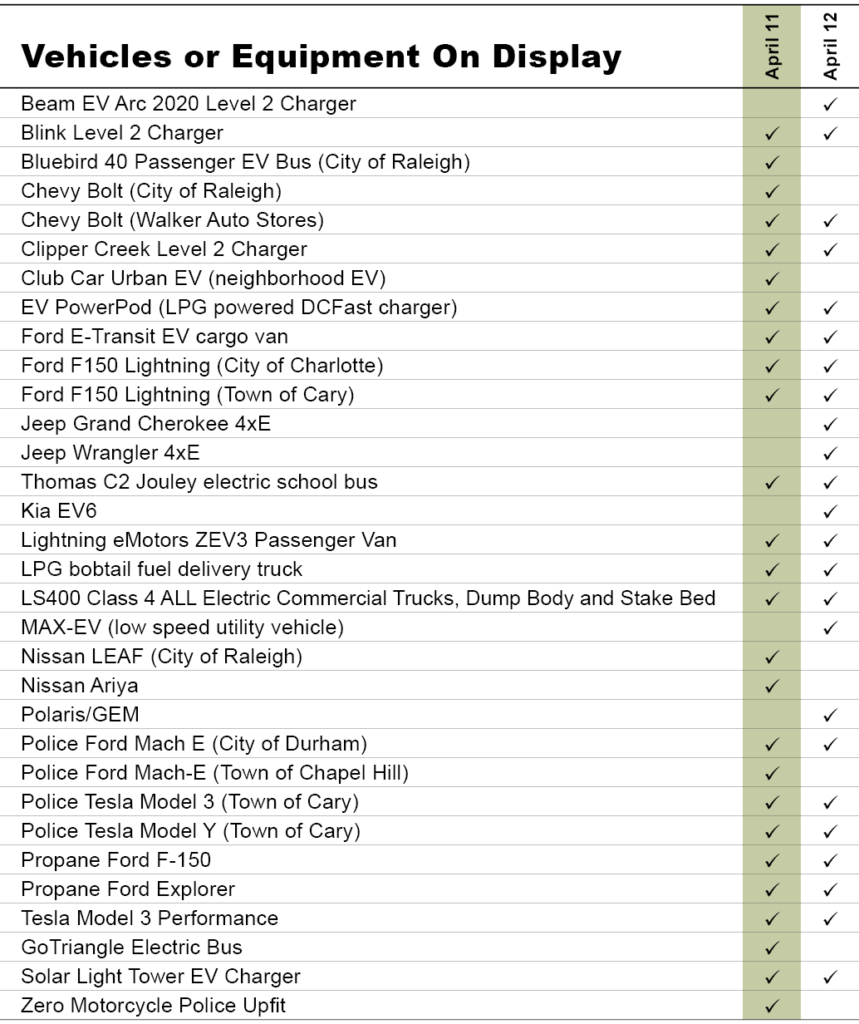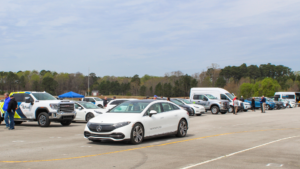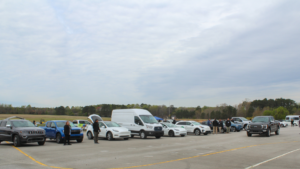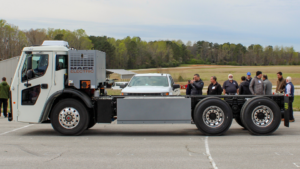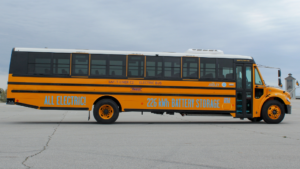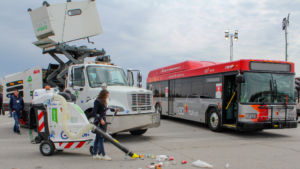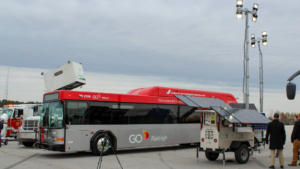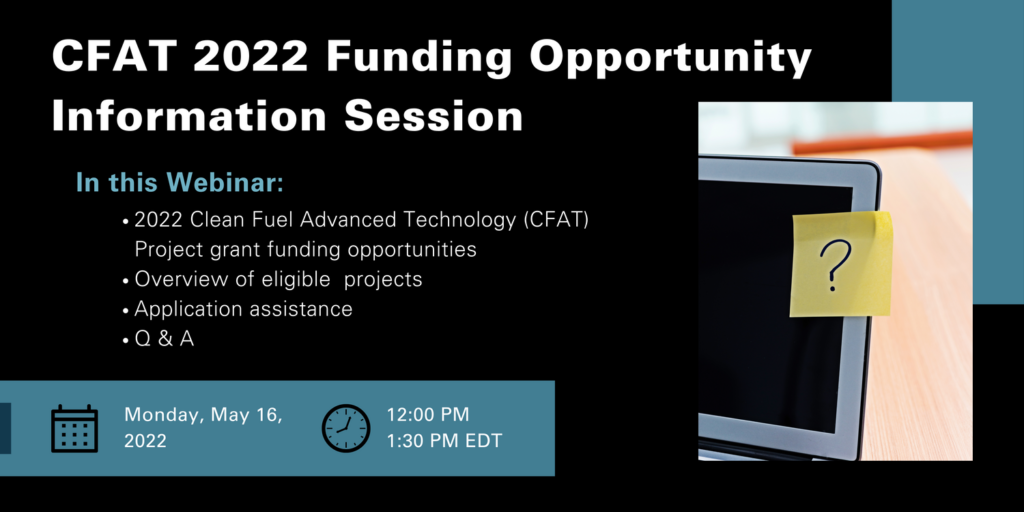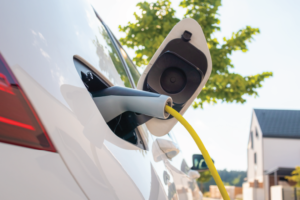 In the pursuit of sustainable transportation, electric vehicles (EVs) have emerged as a transformative force, providing a cleaner alternative to traditional combustion-engine vehicles. As the global transition towards widespread EV adoption gains momentum, local governments must consider a critical aspect often overlooked in the electrification revolution – the resilience and reliability of the infrastructure needed to support the use of these vehicles during and after natural disasters.
In the pursuit of sustainable transportation, electric vehicles (EVs) have emerged as a transformative force, providing a cleaner alternative to traditional combustion-engine vehicles. As the global transition towards widespread EV adoption gains momentum, local governments must consider a critical aspect often overlooked in the electrification revolution – the resilience and reliability of the infrastructure needed to support the use of these vehicles during and after natural disasters.
The North Carolina Clean Energy Technology Center (NCCETC) partnered with the Upper Coastal Plains Council of Governments to promote the development of plans that enhance the resilience of electric vehicle infrastructure in the Upper Coastal Plains region of North Carolina. Part of the initiative was a webinar series designed to disseminate essential information pertaining to electric vehicle infrastructure and its resilience in the face of natural disasters. Tailored to the specifics of Eastern North Carolina, these webinars served as a valuable resource for the region and can help set the stage for similar efforts outside the region.
Reliability, Resilience and Redundancy
The webinar “Electric Vehicles and Resilience During Natural Disasters”, was held on October 31, 2023 and the full webinar recording can be viewed on NCCETC’s Youtube Channel here. The webinar was hosted by Heather Brutz, Director of the Clean Transportation program at NCCETC, and featured presentations from Alexander Yoshizumi from the Applied Data Research Institute, Isaac Panzarella from NCCETC, and Ron Townley from the Upper Coastal Plains Council of Governments.
In the wake of increasing frequency and intensity of natural disasters, the vulnerability of EV charging infrastructure poses a significant challenge. It is essential for stakeholders across industries to collaboratively design and implement solutions that guarantee the continued functionality of EV infrastructure during adverse weather conditions.
Heather Brutz emphasized key vulnerabilities, such as electrical outages and flooding, during the discussion on planning for resiliency. She underscored the importance of reliability and redundancy, stating, “Resilience implies many different things…it can come from having reliable chargers that operate under adverse conditions and it can also come from having redundancy in chargers.” This strategic approach involves deploying backup power, positioning chargers on higher ground to prevent flooding damage, and designing chargers to withstand minor flooding without compromising essential electrical components.
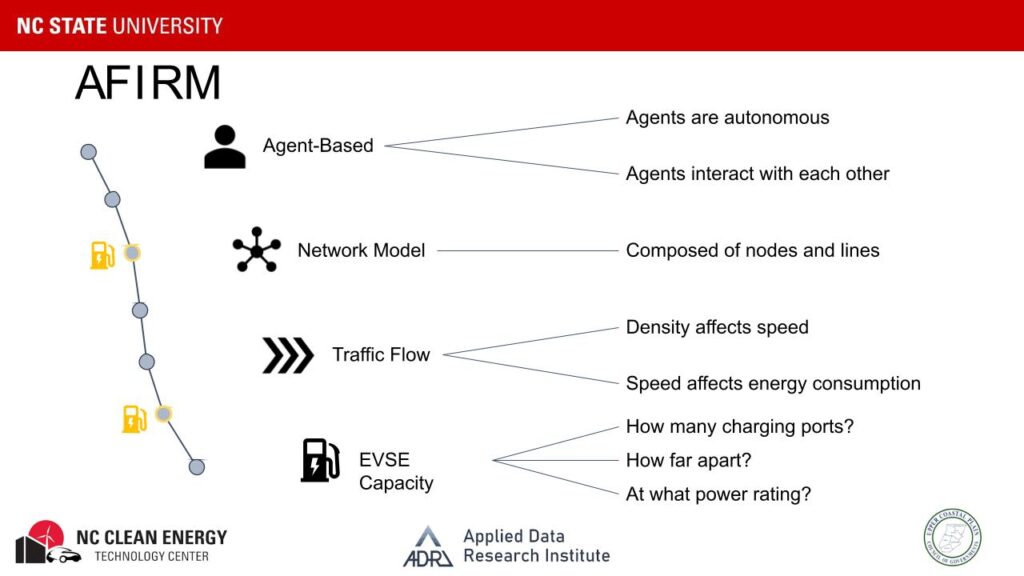
Alexander Yoshizumi, Executive Director of Applied Data Research Institute, introduced the Alternative Fuel Infrastructure Resilience Model (AFIRM), an agent-based network model of traffic flow. This model serves as a crucial tool for regional and transportation planners, as well as electric utilities, offering a comprehensive framework for simulating various scenarios of EV infrastructure under different evacuation conditions.
Recognizing the prolonged refueling times of EVs compared to conventional fuel vehicles, especially in emergency scenarios, Yoshizumi reiterated the need for proactive planning. AFIRM is strategically crafted to anticipate and address the challenges associated with the growing adoption of electric vehicles and the future of electric vehicle supply equipment (EVSE).
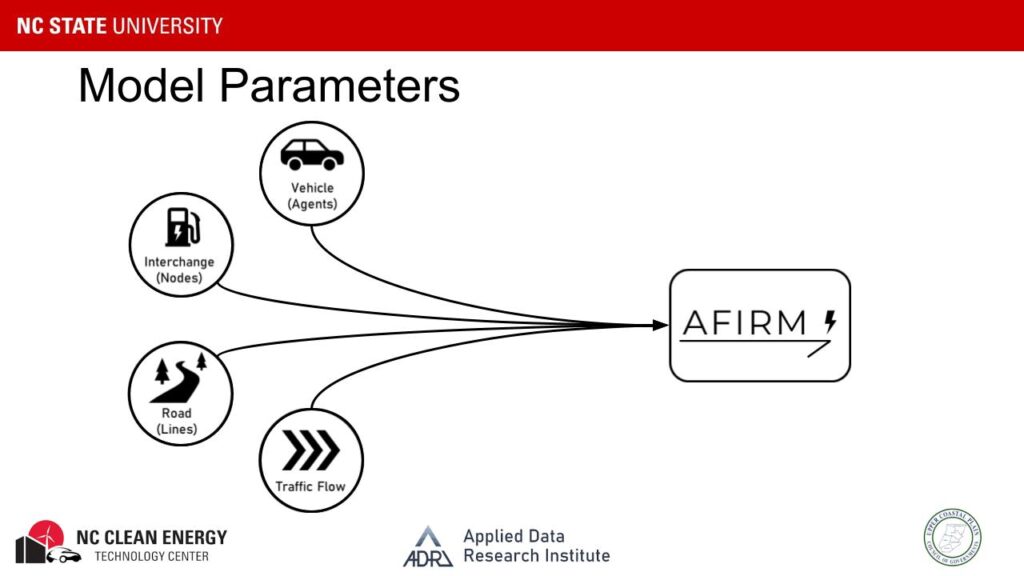
Illustrating some of the parameters the model takes into account, Yoshizumi said, “We break parameters into vehicle agents, the nodes which include interchanges and EVSE, the lines which are the roads themselves, and then the traffic flow itself gets parameterized.” By considering these chosen parameters, the model provides a comprehensive framework for simulating various scenarios of EV infrastructure under different evacuation conditions.
This intricate modeling allows for a nuanced exploration of potential outcomes and facilitates the identification of best practices and improvement opportunities in the design and siting of electric vehicle charging equipment, particularly in emergency scenarios. Through simulations that encompass diverse possibilities of EV infrastructure performance during evacuations, the AFIRM model aims to offer valuable insights in shaping the future of electric mobility in the face of evolving challenges and worsening natural disasters.
Yoshizumi concluded with a look forward to the next steps for AFIRM. “We are currently building out the network model for US-64 and parameterizing rules for the network and then we’re going to use that to identify under what adoption levels and evacuation conditions capacity becomes an issue as well as identify the locations where adding plugs maximizes resilience,” said Yoshizumi.
Isaac Panzarella discussed three main areas of focus in making charging infrastructure more resilient: utility grid resilience measures, charging equipment, and microgrids. At the grid level, measures such as hardening distribution by undergrounding, vegetation management and elevating substations above flooding are handled at the utility level.
At the local level, the government and the private sector can implement measures to make infrastructure more resilient regardless of a distribution grid outage. “There are a number of resilient EV charging equipment technologies that have come out in the last 10 years or so, and more are coming out or under development as people innovate,” Panzarella said.
The integration of technologies such as energy storage systems, solar energy and alternate fuel sources can extend the function of charging stations during natural disasters when connection to the electrical grid may be disrupted. Mobile charging station solutions can take the form of large battery storage systems as well as engine generators or fuel cells that can be moved and connected to critical infrastructure nodes to provide capacity while the grid is inoperable.
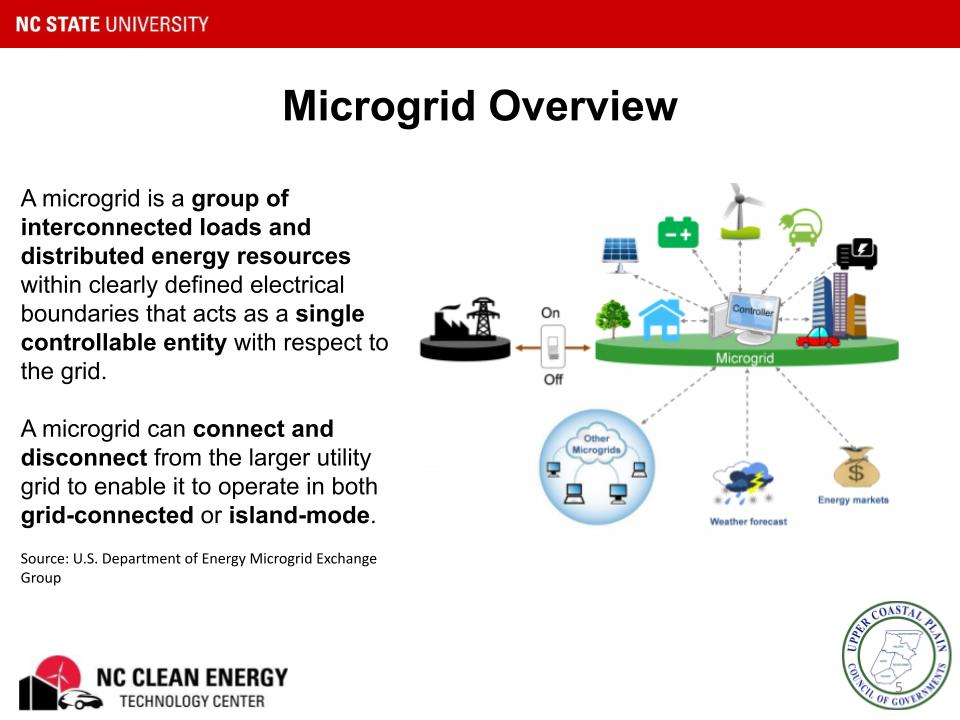
Microgrids are a more robust solution that can be applied in larger EV charging applications, such as the Brookville Smart Energy Bus Depot in Montgomery County, Maryland. Here, 4.3 megawatts (MW) of battery storage is coupled with 2 MW of solar photovoltaics and 2 MW of backup generators to help ensure that the public bus system that many people rely on keeps running during extended grid outages. During normal, blue sky conditions, much of the electric bus charging comes from renewable solar energy, resulting in a 62% reduction of carbon emissions.
Federal Funding Sources for EVSE Resilience
The second session in the webinar series, hosted on November 13, 2023, featured “Federal Funding Sources for EVSE Resilience” and is also available to stream on the NCCETC’s Youtube Channel here. This insightful session, featuring Heather Brutz, Ron Townley, and Isaac Panzarella, delved into crucial federal funding opportunities that underpin the development of resilient EV infrastructure.
Legislators on federal, state and local levels have enacted a variety of direct financial incentives for EVs and EV infrastructure to provide market certainty and facilitate the accelerated deployment of clean transportation technologies.
Heather Brutz highlighted key provisions under the Inflation Reduction Act of 2022, emphasizing the plethora of tax credits it introduced. Brutz said, “There are tax credits for vehicles, fueling infrastructure, and alternative fuels – and it also expanded the Business Energy Investment Tax Credit.”
For government fleets, Brutz highlighted the Commercial Clean Vehicle tax credit since business and tax-exempt organizations can qualify for the credit. “You can get up to $7,500 for vehicles that weigh less than 14,000 pounds and up to $40,000 for vehicles that weigh more than 14,000 pounds with this tax credit,” Brutz explained. The tax credit can be used for the purchase of qualified plug-in EVs and hydrogen fuel cell vehicles that meet the manufacturing requirements outlined by the U.S. Internal Revenue Service (IRS).
The Inflation Reduction Act (IRA) extended and modified the Alternative Fuel Vehicle Refueling Property Credit, which can be used to cover up to 30% of the cost of qualified vehicle refueling and recharging property installed in a home or business, not to exceed $100,000. Beginning in 2023, however, qualifying property has been limited to installments placed in service within low-income communities or non-urban census tracts.
Furthermore, Brutz detailed amendments to the federal Business Energy Investment Tax Credit (ITC), introducing prevailing wage and apprenticeship requirements for larger systems to qualify for the full tax credit. Projects under 1 megawatt (MW) can receive the full 30% tax credit if construction begins before January 1, 2025. Projects over 1 MW, commencing construction before the same date, can secure a base tax credit of 6%, extendable to 30% contingent upon compliance with new labor standards.
Project eligibility extends to additional credit amounts through various bonus credits under the ITC. Projects meeting specific criteria, such as Domestic Content Bonus and Energy Community Bonus, unlock additional financial incentives.
The Low-Income Communities Bonus Credit Program offers an increased tax credit of 10% for solar and wind projects under 5 MW built in qualifying communities, as defined by the New Markets Tax Credit or on Indian Land. Projects in low-income residential buildings or low-income economic benefit projects can receive an increased tax credit of 20%.
As part of the IRA, the Climate Pollution Reduction Grant (CPRG) program allocates funds to states, local governments, territories and tribes for developing and implementing climate impact mitigation plans. Notably, the program awards $1 million to the 67 most populous areas in the U.S., including the Raleigh-Durham and Charlotte area in North Carolina. The NC Department of Environmental Quality is administering CPRG funds for the state and anticipates receiving a $3 million award for planning activities.
The Bipartisan Infrastructure Law (BIL) of 2021, with its $108 billion authorization for federal public transportation programs, introduces an array of extended and new grant programs. BIL authorized the Environmental Protection Agency (EPA) to administer $5 billion over 5 years in rebates, grants and contracts, aiming to replace a significant portion of the country’s school buses with environmentally friendly and zero emission models to mitigate the adverse emissions from older buses through the Clean School Bus program.
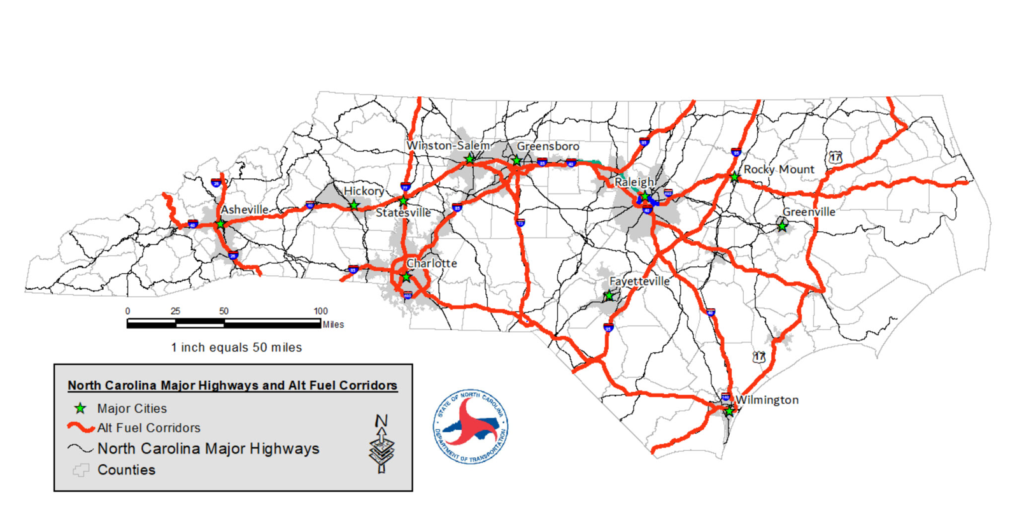
One program established by BIL was the National Electric Vehicle infrastructure Program (NEVI), which provides nearly $5 billion from July 2022-June 2027 to help states create a network of 500,000 publicly accessible EV charging stations along designated alternative fuel corridors. Additionally, the Carbon Reduction Program was created to provide funds for projects designed to reduce transportation-related emissions defined as carbon dioxide emissions from on-road highway sources.
Complementary to state managed programs under NEVI, the Charging and Fueling Infrastructure (CFI) Discretionary Grant Program seeks to strategically deploy publicly accessible EV charging stations and other alternative fuel infrastructure along designated alternative fuel corridors.
BIL continued the Congestion Mitigation and Air Quality (CMAQ) Improvement Program which provides a flexible funding source to state and local government transportation projects and programs to help meet the requirements of the Clean Air Act. State CMAQ funds are further allocated to the Clean Fuel Advanced Technology (CFAT) program, administered by NCCETC, to provide annual funding for clean transportation technologies in eligible countries across North Carolina.
On both federal and state levels, the Diesel Emissions Reduction Act is another annual funding opportunity allocated to projects for the establishment of diesel emissions reduction programs for diesel vehicles, engines and equipment including school buses, transit buses, medium- or heavy-duty trucks, marine engines, locomotives and non-road engines, equipment, or vehicles.
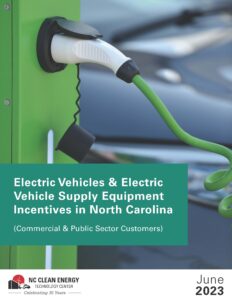 To help customers navigate the variety of direct financial incentives available for EVs and EV fueling infrastructure, NCCETC previously published the guidance document Electric Vehicles & Electric Vehicle Supply Equipment Incentives in North Carolina. This comprehensive document outlines incentives available through federal, state, regional and electric utility funded programs.
To help customers navigate the variety of direct financial incentives available for EVs and EV fueling infrastructure, NCCETC previously published the guidance document Electric Vehicles & Electric Vehicle Supply Equipment Incentives in North Carolina. This comprehensive document outlines incentives available through federal, state, regional and electric utility funded programs.
Initiatives and strategic planning such as AFIRM coupled with funding sources to support the implementation of clean transportation technologies are paving the way for a resilient and reliable future for electric vehicle infrastructure. By addressing vulnerabilities, embracing innovative models like AFIRM, and capitalizing on federal funding opportunities, stakeholders can contribute to the safety of drivers in emergencies and inspire confidence and investment in the robust deployment of EV infrastructure and ensure EVs remain a sustainable and resilient mode of transportation.

